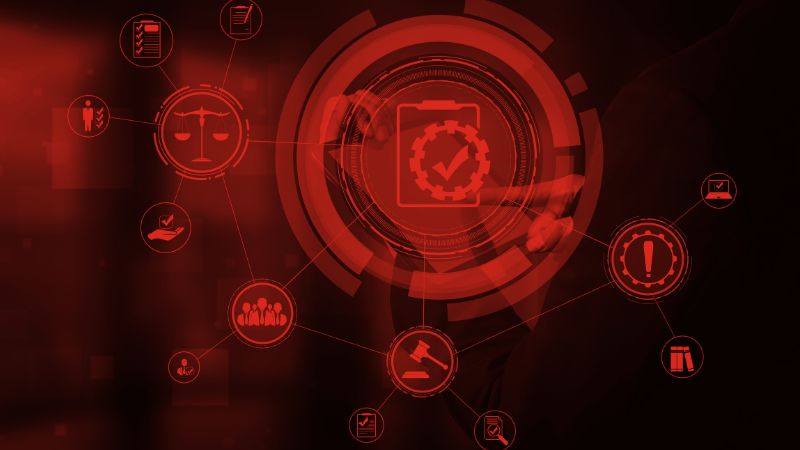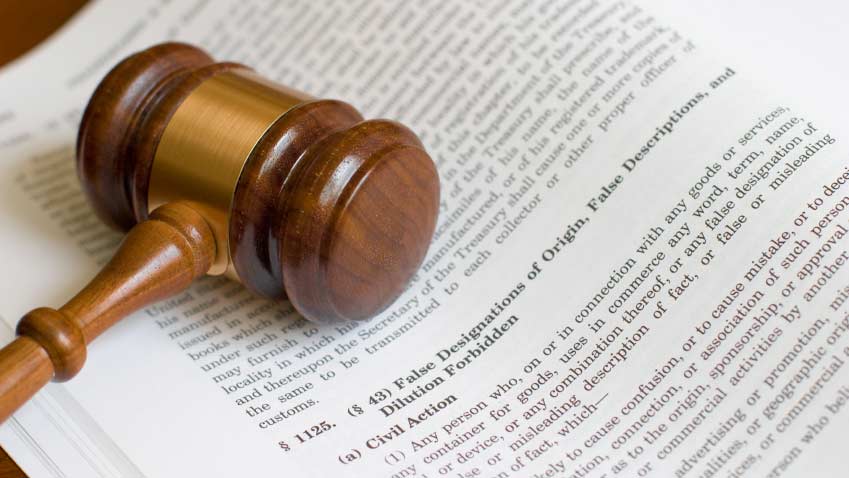Public Policy Immersion
- RIT /
- Rochester Institute of Technology /
- Academics /
- Public Policy Immersion
Overview for Public Policy Immersion
This immersion provides students with a clear understanding of public policy, the policy process, and policy analysis. Students have the opportunity to develop perspectives on a variety of contemporary public policy issues, especially those that emerge from scientific and technological advancements.
Notes about this immersion:
- Immersions are a series of three related general education courses and are intended to provide opportunities for learning outside of a student’s major area. Immersions may be in areas that will complement a student’s program but may not overlap with program requirements.
- This immersion is closed to students majoring in public policy.
- Students are required to complete at least one course at the 300-level or above as part of the immersion.
The plan code for Public Policy Immersion is PUBPOL-IM.
Featured Work and Profiles
-
New ways to identify "predicate creep" for improving the FDA’s 510K process for clearing medical devices
Sandra Rothenberg Are there new ways to identify potential “predicate creep” —a cycle of technology change through repeated clearance of devices based on predicates with slightly different technological characteristics...
Read More about New ways to identify "predicate creep" for improving the FDA’s 510K process for clearing medical devices -
New Liberal Arts Multidisciplinary Scholars program supports STEM majors who have interest in liberal arts disciplines
“Giving more students the opportunity to deeply engage with the College of Liberal Arts’ human-centered and tech-infused programs alongside their STEM-based education will inspire more creativity and...
Read More about New Liberal Arts Multidisciplinary Scholars program supports STEM majors who have interest in liberal arts disciplines
Curriculum for 2024-2025 for Public Policy Immersion
Current Students: See Curriculum Requirements
| Course | ||
|---|---|---|
| Electives | ||
| Choose three of the following: | ||
| PUBL-201 | Ethics, Values and Public Policy |
|
This course focuses on the connections and interplay between personal and social values, ethics, and public policy. It explores how values and norms influence public policies and how the resulting expressions of values through public policies impact the implementation and effectiveness of policy choices. It also delves into how different countries make widely different policy choices based on their citizens’ values and social norms. The course also considers how new developments in science and technology influence the interplay between values, ethics, and policy across multiple issues. In addition, this course explores how to formulate values-based explanations of certain public policy preferences. Topics range across the policy issue spectrum. Lecture 3 (Fall). | ||
| PUBL-210 | Introduction to Qualitative Policy Analysis |
|
This course teaches the practical aspects of doing theoretically informed qualitative social research with policy applications. Special attention is given to the processes by which research problems are formulated, research designs selected, data gathered and interpreted, and inferences and conclusions drawn. A variety of tools, such as surveys, interviewing, and content analysis will be applied to specific case studies covering multiple policy issues. Lecture 3 (Spring). | ||
| PUBL-301 | Public Policy Analysis |
|
This course provides students with necessary tools to help them become effective policy analysts. The course places particular emphasis on understanding the policy process, the different approaches to policy analysis, and the application of quantitative methods, such as cost-benefit analysis, sampling designs, and decision trees. Students will apply these tools to contemporary public policy decision making at the local, state, federal, and international levels. (Prerequisites: This class is restricted to students with at least 2nd year standing.) Lecture 3 (Spring). | ||
| PUBL-302 | Decision Analysis |
|
This course provides students with an introduction to decision science and analysis. The course focuses on several important tools for making good decisions, including forecasting, risk analysis, and multi-attribute decision making. Students will apply these tools to contemporary public policy decision making at the local, state, federal, and international levels. (Prerequisites: This class is restricted to students with at least 2nd year standing.) Lecture 3 (Spring). | ||
| PUBL-360 | Social Policy and Inequity |
|
Social policy is concerned with promoting the welfare of citizens, including issues such as poverty, health, housing, education, and unemployment, among others. Many contemporary social policies are justified on the grounds of equity, as well as other ethical considerations. In this class, we will look at policies that address social inequity, with a particular focus on socially disadvantaged and vulnerable populations. Special emphasis will be placed on understanding different dimensions of social equity in social policy debates at the federal, state, and local levels. We will utilize common ethical frameworks, such as justice, equality, fairness, and care, alongside other analysis tools, to examine these policies.Topics vary from year to year or term. Students may repeat the course, but may not repeat the topic. This course can be taken as part of the Public Policy minor and immersion or may be taken as an elective. Lecture 3 (Fall or Spring). | ||
| PUBL-363 | Cyber Security Policy and Law |
|
Why are we still so bad at protecting computer systems? Is it because we don’t have good enough technology? Or because we lack sufficient economic incentives to implement that technology? Or because we implement technologies but then fail to use them correctly? Or because the laws governing computer security are so outdated? Or because our legal frameworks are ill-equipped to deal with an international threat landscape? All these reasons—and others— have been offered to explain why we seem to see more and more large-scale cybersecurity incidents and show no signs of getting better at preventing them. This course will examine the non-technical dimensions of this problem—the laws and other policy measures that govern computer security threats and incidents. We will focus primarily on U.S. policy but will also discuss relevant policies in the E.U. and China, as well as international tensions and norms. The
central themes of the course will be the ways in which technical challenges in security can be influenced by the social, political, economic, and legal landscapes, and what it means to protect against cybersecurity threats not just by writing better code but also by writing better policies and laws. Lecture 3 (Fall, Spring). | ||
| PUBL-510 | Technology Innovation and Public Policy |
|
Technological innovation, the incremental and revolutionary improvements in technology, has been a major driver in economic, social, military, and political change. This course will introduce generic models of innovation that span multiple sectors including: energy, environment, health, and bio- and information-technologies. The course also analyzes how governments choose policies, such as patents, to spur and shape innovation and its impacts on the economy and society. Students will be introduced to a global perspective on innovation policy including economic competitiveness, technology transfer and appropriate technology. Lecture 3 (Spring). | ||
| PUBL-515 | Business and Public Policy |
|
This class focuses on the interaction and interplay between business/industries and government policies in the U.S. context. We will discuss how different types of public policy, including laws and regulations, taxes, subsidies, and other government interventions and programs can directly or indirectly influence industries and markets, business environments and decisions, economic activities and development, and long-term technological change. Policies to be discussed include antitrust laws, environmental health and safety regulations, technology policy, labor policy, and intellectual property rights, among others. Specific policies may vary according to the instructor. We will also critically look at how business participates in and impacts the policy making process (e.g., through interest group activities, lobbying, and campaigning finance) and the larger societal needs for government services. Lastly, we will explore the risks and benefits of business acting in cooperation with or, in some cases, as a replacement for public policy. Lecture 3 (Fall or Spring). | ||
| PUBL-520 | Information and Communications Policy |
|
This course examines how federal and international policies are developed to influence innovation in, and regulation of, information, computer, and telecommunications technologies. In particular the course will examine such topics as privacy, freedom of speech, cyber security, copyrights and intellectual property rights, access to information technology, and the regulation of the Internet. Lecture 3 (Fall). | ||
| PUBL-530 | Energy Policy |
|
This course provides an overview of energy resources, technologies, and policies designed to ensure clean, stable supplies of energy for the future. The course evaluates the impacts of fossil fuel, renewable energy, and hydrogen technologies on society and how public policies can be used to influence their development. The development of U.S. energy policy is of particular concern, although a global perspective will be integrated throughout the course. Lecture 3 (Spring). | ||
| PUBL-531 | Climate Change: Science, Technology and Policy |
|
This multidisciplinary course will provide students with diverse perspectives on global climate change issues, providing a survey of important aspects of the problem. Topics include atmospheric chemistry, climate modeling, ecological impacts and feedbacks, economics of climate change, international climate policies, and social and environmental justice. The course will include a variety of instructors and guest lecturers, providing an overview of the complex and inter-related nature of global climate change. (This class is restricted to undergraduate students with at least 3rd year standing.) Lecture 3 (Spring). | ||
| PUBL-589 | Topics in Public Policy |
|
Allows examination of a special problem or topical area in the field of public policy. Topics and specific content and methods vary from year to year or term to term. Lecture 3 (Fall, Spring). | ||
| STSO-201 | Science and Technology Policy |
|
STP eExamines how local, state, federal and international policies are developed to influence innovation, the transfer of technology and industrial productivity in the United States and other selected nations. It provides a framework for considering the mechanisms of policy as a form of promotion and control for science and technology, even once those innovations are democratized and effectively uncontrollable. Further focus is dedicated to the structure of governance inherent in U.S. domestic policy, limits of that approach, the influences of international actors, and utilizing case studies to demonstrate the challenges inherent in managing differing types of technology. Lecture 3 (Fall). | ||
| STSO-421 | Environmental Policy |
|
Governments and organizations use a variety of tools, including laws and regulations, to take action on issues related to people and the environment. This course introduces students to environmental policies on numerous topics in a variety of institutions, contexts, and scales (such as local, state, federal, international). Students will examine how societal values inform the development, content, and impacts of environmental policies. Key topics include climate change, air and water pollution, and community sustainability. Lecture 3 (Fall, Spring). | ||
* At lease one course must be taken at the 300-level or above.











